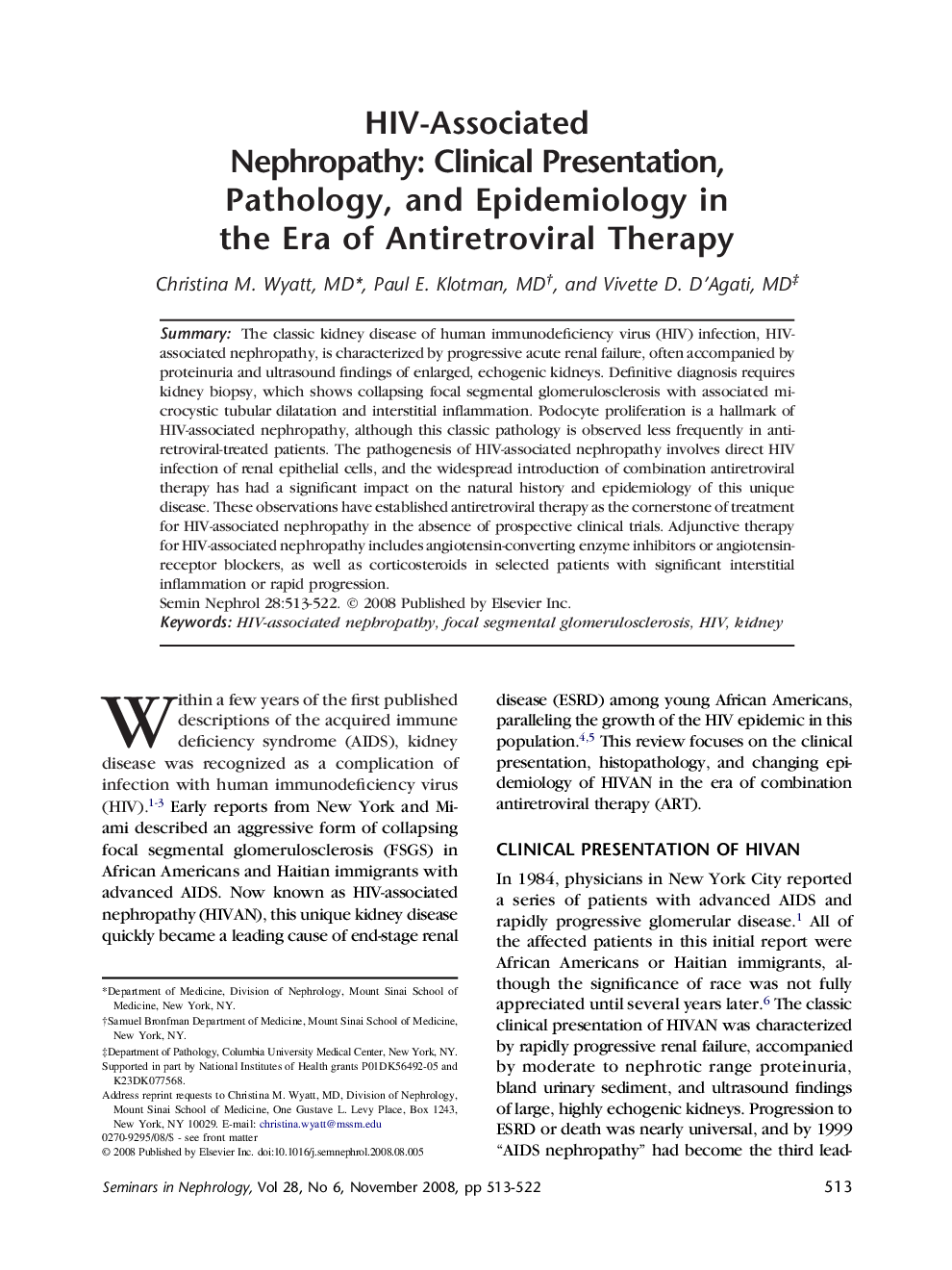| Article ID | Journal | Published Year | Pages | File Type |
|---|---|---|---|---|
| 3897433 | Seminars in Nephrology | 2008 | 10 Pages |
Abstract
The classic kidney disease of human immunodeficiency virus (HIV) infection, HIV-associated nephropathy, is characterized by progressive acute renal failure, often accompanied by proteinuria and ultrasound findings of enlarged, echogenic kidneys. Definitive diagnosis requires kidney biopsy, which shows collapsing focal segmental glomerulosclerosis with associated microcystic tubular dilatation and interstitial inflammation. Podocyte proliferation is a hallmark of HIV-associated nephropathy, although this classic pathology is observed less frequently in antiretroviral-treated patients. The pathogenesis of HIV-associated nephropathy involves direct HIV infection of renal epithelial cells, and the widespread introduction of combination antiretroviral therapy has had a significant impact on the natural history and epidemiology of this unique disease. These observations have established antiretroviral therapy as the cornerstone of treatment for HIV-associated nephropathy in the absence of prospective clinical trials. Adjunctive therapy for HIV-associated nephropathy includes angiotensin-converting enzyme inhibitors or angiotensin-receptor blockers, as well as corticosteroids in selected patients with significant interstitial inflammation or rapid progression.
Related Topics
Health Sciences
Medicine and Dentistry
Nephrology
Authors
Christina M. MD, Paul E. MD, Vivette D. MD,
